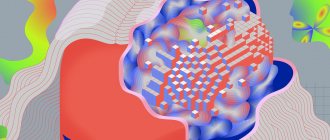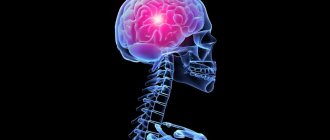The concept of bilateral (bipolar) affective disorder combines several similar chronic mental pathologies. Their distinctive feature is cyclically alternating periods of depressive and excited states of patients. The early name of the pathology, manic-depressive syndrome, clearly reflected this symptom.
What is bipolar disorder
People suffering from bipolar disorder tend to periodically or regularly fall into an uncontrollable depressed or emotional state. People are unable to regulate such mood swings on their own. They do not give in to volitional efforts. In addition, patients are not always able to critically assess their situation. A bad mood is often attributed to life circumstances, and during periods of euphoria, many lose control over their behavior.
The depression stage of bipolar disorder has classic symptoms:
- low mood;
- apathy;
- asthenia;
- lack of motivation in study and work;
- inability to feel pleasure;
- tendency to long-term worries, a sense of one’s own insignificance.
In severe cases, thoughts appear about the complete hopelessness of existence and the desire to commit suicide. A person in the depressive stage of the disorder may seem depressed about something or simply appear melancholic. The duration of depression of consciousness varies from several days to several months.
The manic period develops immediately after depression or against the background of emotional stability. It is characterized by a euphoric, excited state. In some patients, aggression and extreme anxiety predominate in behavior. Almost everyone loses the ability to adequately assess reality. To those around them, patients at this stage appear eccentric, intoxicated, unreasonably happy, irresponsible, or embittered. Often the behavior of patients is devoid of any logic and resembles madness. Psychosis can last for several hours, days or weeks. During this period, auditory and visual hallucinations and delusional ideas may appear.
The stage of hypomania has similar symptoms to mania, but is less pronounced. In this type of disorder, the ability to control behavior is partially preserved. Patients easily take on several tasks at the same time, are extremely energetic, react violently to what is happening around them, and amaze with activity and efficiency. It can be difficult to determine the inadequacy of such behavior from the outside, since the actions of patients are often outwardly logical and effective.
Causes
As mentioned above, the main factor in the development of cyclothymia is genetic predisposition. But, in addition, some sources adhere to the psychodynamic theory. According to her, a mild form of manic-depressive psychosis can develop in childhood against the background of worries about the unfavorable atmosphere of growing up. Most likely, this again should be blamed on the parents for their different views on raising their child, the lack of an action plan in this area, as well as excessive criticism with little encouragement for the child.
There is also a biological version of the cause of this disease. In this case, the instability of the emotional sphere is explained by the hyperactivity of cortisol. This hormone in the human body is actively involved in creating an individual response to stress.
Types of bipolar disorder
Depending on the characteristics of polarizations of the psyche and the duration of their manifestation, several types of bipolar disorder are distinguished, which are independent pathologies.
- Bipolar disorder type 1. In the patient's life there was at least 1 acute manic period, which occurred after a long depression. The disease is usually accompanied by psychosis.
- Bipolar disorder type 2. Depression in this disease is replaced by hypomania, acute psychotic states are absent.
- The cyclothymic course of bipolar disorder is characterized by frequent alternations between depressed and manic states. They are more common in teenagers and people under 40 years of age.
- Mixed bipolar disorder manifests itself with simultaneous depression and manic periods. The most painful pathology in which feelings of anxiety and emotional outbursts are accompanied by despair.
Various types of bipolar disorder affect men and women of all ages. The severity of symptoms varies among most people. The stages of depression are often long-term, and occur gradually, signaling only a persistent decrease in mood. During rare or short-term manic episodes, such people appear to be completely adequate. In young people, as a rule, the disorder is more pronounced.
1% of the population has some type of bipolar disorder. About a third of all cases are severe. However, this mental pathology almost never leads to a decrease in mental abilities. During periods of remission, patients do not differ from other people, they reason sensibly and are aware of their actions. Negative emotions often push those suffering from bipolar disorder to abuse alcohol and potent substances, which provoke the progression of the disorder.
Diagnosis of bipolar disorder
Reasons to suspect bipolar disorder:
- causeless mood changes: transition from a gloomy state to a cheerful and cheerful one;
- sudden keen interest in travel, unfamiliar people, new activities, just as suddenly replaced by new ideas;
- periods of insomnia and lack of appetite, accompanied by acute anxiety or euphoria;
- long-lasting despondency, after which the desire to quickly redo everything is overwhelming, embitterment and irritability appear.
If such symptoms occur regularly, you should take mental health seriously.
Among the reasons causing the development of bipolar disorder are:
- genetic predisposition;
- social spectrum;
- dysfunction, organic brain damage;
- psychological and traumatic brain injuries.
Psychiatrists differentiate bipolar disorders from schizophrenia, neuroses, endogenous depression, anxiety and other types of affective disorders. During conversations with patients and their relatives, doctors find out whether manic, hypomanic, mixed episodes occurred, and what preceded them. Anamnesis, possible triggers and injuries that provoked the onset of the disease are also important. The severity of the pathology is determined using special scales.
The mood changes suddenly. How to live with bipolar?
Kim Kardashian's husband, rapper Kanye West, spoke well about this disease. On the cover of his album he wrote: "I hate being bipolar, it's amazing." You can't say it more precisely. Our expert is a psychiatrist of the highest category, corresponding member of the Russian Academy of Sciences, professor, head of the department of psychiatry and narcology, director of the Institute of Electronic Medical Education of the First Moscow State Medical University named after I.M. Sechenov, Doctor of Medical Sciences Marina Kinkulkina.
The essence of mental illness, abbreviated as bipolar affective disorder (BD), is the radically sudden and causeless mood swings that occur throughout a person’s life. Previously, this disease was called manic-depressive psychosis.
Life at different poles
We are talking not just about alternating sadness or joy, as is often the case with emotional people, but about extreme degrees of either despair or euphoria. A change in these moods can occur either gradually or suddenly, and for no apparent reason.
Many celebrities in the past are believed to have suffered from bipolar disorder. This illness, however, like other mental disorders, is attributed to Byron and Hemingway, Virginia Woolf and Edgar Allan Poe, Van Gogh, Schumann, Vivien Leigh and many others. There is an assumption that even “our everything” suffered from a mild degree of bipolar disorder - in any case, contemporaries often mentioned Alexander Sergeevich’s mood swings.
Many modern stars openly admit to having this mental disorder. In particular, Britney Spears, Miley Cyrus, Selena Gomez, Mariah Carey, Mel Gibson and others admitted this.
Genetics or lifestyle?
Men also suffer from bipolar disorder, but the weaker sex is more likely to suffer from it. This disorder can appear at any age: in both a teenager and an elderly person.
The main risk factor is genetics. However, a specific gene that would be responsible for the development of bipolar disorder has not been identified. This is a polygenic disorder, so taking tests to find out how great the risk of getting sick does not make sense yet. Moreover, genetic predisposition is not a death sentence. This was proven by studies on identical twins, one of whom developed bipolar disorder over the years, and the other did not. Probably, some predisposing factors have an influence. Some of them are known. It is believed that living at the limit of one's capabilities, with constant deadlines, stress and chronic lack of sleep, as well as night shift work, frequent flights with significant changes in hour-long flights and, of course, the use of psychoactive substances contribute to the development of the disease. Therefore, you should try to avoid all this. But scientists have yet to find out how the lockdown and pandemic, as well as other stresses of the ill-fated 2021, affect the psyche. Although probably not in the best way.
You won't get bored
According to various estimates, bipolar disorder affects from a fraction of a percent to several percent of the population. Recently, the proportion of affective disorders has increased significantly, which may be explained by improved diagnosis (as well as an increase in the number of stresses).
At first glance, BAR does not look like something scary or dangerous. To many, this disorder even seems attractive - sometimes it’s sad, sometimes it’s fun, in general, you won’t get bored. Besides, being different from everyone else is fashionable these days. And then, it is believed that people with bipolar disorder have higher intelligence and creative abilities than the “gray masses”. But even if this is so, then none of those who suffer from it will definitely call bipolar disorder a pleasant thing. It is especially difficult for those patients who do not seek medical help on time. Without treatment, both phases of bipolar disorder can last for months (although sometimes the disorder occurs with frequently changing phases). Moreover, it is impossible to say which period of the disease is more severe - manic or depressive.
It's hard when you feel bad
Those who have experienced depression say that it is the worst thing that can happen. The whole world appears in black, not only mood, but also self-esteem is greatly reduced, the meaning of existence itself is lost. Life is perceived as a chain of tragic mistakes, the patient constantly blames himself for all troubles and sins, even those that are not even traced. In addition to mental suffering, physical suffering often occurs: a person moves as if in a dream, with difficulty, as if there were weights on the legs and arms, or as if he were swimming against the current. In addition, pain and tension are felt throughout the body. With moderate depression, the stomach often hurts. People go to doctors about this, but a diagnosis cannot be made. And the daily pain continues. Psychiatrists call this somatoform symptoms. With severe depression, many people experience so-called “pre-cardiac melancholy”: pain and heaviness in the chest, “a stone on the heart.” But even an in-depth examination does not reveal cardiac problems.
Often, with depression, patients (especially older ones) complain of difficulty thinking and memory impairment. Doctors suspect they have dementia, but in fact, mood disorders do not affect the intellect, and with treatment, when the mood stabilizes, thinking abilities are restored.
But the worst consequence of depression is suicide. Most suicide attempts are made in this state. Sometimes people in very severe depression, believing that they have done something irreparable, and believing that the consequences of their actions can harm loved ones, decide on extended suicides, in which they settle scores not only with their own lives, but also take their loved ones with them ( more often children).
It's bad when it's too good
The manic stage of bipolar disorder is subjectively more pleasant. Patients are in a great mood: they love the whole world and themselves in it. The reflection in the mirror pleases, there is not the slightest doubt in one’s own talents and intelligence, there is more than enough strength and energy, the bonus is accelerated mental activity. Many patients in this stage sleep for an hour a day, but do not experience fatigue. Sometimes they are on their feet for days and at least they are as energetic as an Energizer. It seems great. But no. During the manic phase, desires and ideas arise too quickly, so a person grabs onto every new task, but, as a rule, does not complete anything. So productivity at this stage is low. But it would be okay if that was only the case/
The main danger of mania is that a person has no criticism at this moment and he can commit actions that he will later greatly regret. For example, he can give away all his property to others (sometimes unfamiliar people or scammers). Or, say, he will take out loans to go on a trip to the other side of the world. Maybe even steal something - for example, to give an expensive gift. Many patients at these moments enter into hasty intimate relationships, mistaking a chance meeting for the love of their life (while completely “forgetting” that a wife and four children are waiting at home). Finally, often with mania, people, experiencing euphoria, ignore their severe somatic symptoms, as a result, do not consult a doctor for a long time and thus trigger a serious illness (pneumonia, for example, or COVID-19).
In addition, not all patients in the manic stage are “darlings”. They often show unreasonable aggression if, for example, others do not agree with their “brilliant” ideas. As a result of “angry mania,” conflicts and even situations arise that require the intervention of law enforcement agencies and involuntary hospitalization of the patient.
With good intentions
The worst thing that relatives and friends of a person with bipolar disorder can do is ignore the problem, devalue the suffering, while blaming the patient himself and appealing to his conscience. For example, they urge a depressed person to “pull himself together, don’t lose heart,” they say that he is “out of his mind,” and so on. A patient at the stage of mania is most often accused of immorality, frivolity, irresponsibility, promiscuity, etc. However, doing this is the same as blaming a person with diabetes for not being able to eat sweet cake, or blaming a patient with heart failure for not running a marathon.
BAR is a disease like many others. And she needs to be treated. The sooner proper therapy is started, the faster the patient’s condition can be stabilized and the better the future prognosis.
How to treat"?
On the Internet you can not only test yourself for any mental disorder, but also find out how to “cure”. Doctors strongly advise against doing this. The least harm of self-medication is that it will not help, but it can also worsen the condition. For example, inadequate use of antidepressants for bipolar disorder can plunge a person from a depressive phase into a severe manic state, from which it will then be difficult to get out.
Only a psychiatrist (and not a psychologist, neurologist or doctor of any other profile) can identify bipolar disorder and choose the right treatment. Treatment must be strictly individual; it is selected based on the characteristics of a particular patient and taking into account the moment in the course of the disease. The goal of therapy is not only to equalize the patient’s mood, but also to prevent repeated episodes.
In the treatment of bipolar disorder, the main role is played by drugs to stabilize mood - mood stabilizers (lithium salts, some anticonvulsants (anticonvulsants) and new generations of antipsychotics). Modern medications are much better tolerated than their predecessors and have fewer side effects, as they are designed for long-term use over many years. While taking them, women can even become pregnant. For depression within this disorder, antidepressants are prescribed only in exceptional cases, given the danger of changing one phase to another
Bipolar disorder cannot be cured once and for all, so you often have to take medications for years (with periodic visits to the doctor). But often, when the patient begins to feel well thanks to medications (this state - intermission - is completely indistinguishable from full health), he can stop taking the drugs. This is a big mistake that does not allow achieving a stable treatment result. After all, it is long-term use of maintenance therapy recommended by a doctor that allows you to achieve a stable state and feel the joy of life for many years.
Link to publication: Arguments and facts











